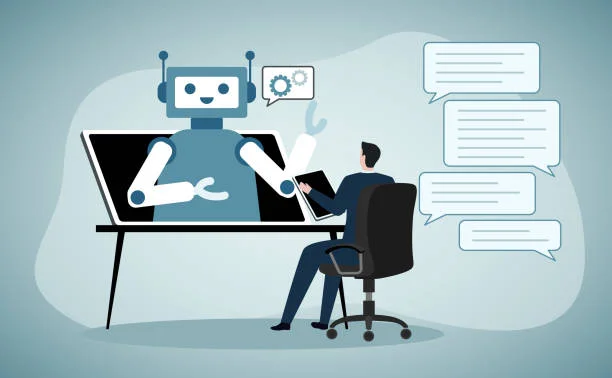
Benefits Of AI-Powered Learning In The Classroom
“Unlocking the future of education: Discover how AI-powered learning revolutionizes the way we acquire knowledge and skills.”
Table of Contents
- Personalized Learning Experience
- Enhanced Teacher-Student Interaction
- Real-time Data Analytics
- Development of Critical Skills
- Ethical Considerations and Potential Limitations
- Conclusion
Education is a constantly evolving field, with educators always seeking innovative ways to enhance learning outcomes and engage students. In recent years, Artificial Intelligence (AI) has emerged as a transformative force within education, offering countless possibilities for personalized and interactive learning experiences. AI-powered learning has the potential to revolutionize the classroom, providing students with tailored educational content, offering real-time data analytics, and developing critical skills.
Personalized Learning Experience
No two students are the same, and AI-powered learning understands and embraces this fact. Through advanced algorithms, AI can analyze student data and deliver personalized educational content that caters to each student’s unique needs, abilities, and learning style. This tailored approach ensures that students receive the right level of challenge and support, maximizing their engagement and knowledge retention.
Adaptive assessments, another vital component of AI-powered learning, play a crucial role in identifying knowledge gaps. By recognizing areas where students struggle, AI algorithms can recommend tailored remedial measures, such as additional practice materials or targeted interventions. This personalized learning experience empowers students to take ownership of their education and progress at their own pace, boosting their confidence and motivation to learn.
Enhanced Teacher-Student Interaction
AI-powered learning empowers educators by providing them with comprehensive insights into their students’ learning patterns, needs, and progress. By automating routine administrative tasks, AI tools free up valuable time for teachers, enabling them to focus on meaningful interactions with their students. With reduced administrative burdens, teachers have more opportunities to build strong relationships with their students, supporting them in their learning journey.
AI-powered chatbots, integrated into the learning platforms, offer personalized feedback and support to students. These virtual assistants are available round the clock; ensuring students have access to guidance and resources whenever they need it. The instant, personalized feedback provided by AI-powered chatbots helps students track their progress and make improvements, fostering a positive teacher-student relationship by complementing the role of educators.
Artificial intelligence is revolutionizing education, empowering learners with personalized and immersive experiences! Discover why AI-powered learning is a game changer: [ https://staging.aila.sa/ ] #EducationRevolution #AI #GameChanger
Real-time Data Analytics
AI-powered learning platforms address this issue by leveraging real-time data analytics. These platforms swiftly analyze vast sets of data, such as students’ performance on assessments, their engagement with learning materials, and their interactions with the platform.
Through AI analytics, students gain invaluable insights into learning outcomes and areas of improvement. Students, on the other hand, can monitor their progress and receive personalized recommendations for improvement. Moreover, AI-powered learning platforms can identify at-risk students early on, allowing educators to implement proactive interventions and support them academically.
Development of Critical Skills
The integration of AI in education plays a pivotal role in preparing students for the successful future. AI-powered learning platforms foster the development of critical skills, such as problem-solving, critical thinking, and creativity. Through interactive and immersive learning experiences, students apply theoretical knowledge to real-world scenarios, developing a deep understanding of the subject matter and honing their problem-solving abilities.
Furthermore, AI can assist in bridging the gap between classroom learning. By incorporating AI into the curriculum, students acquire hands-on experience with cutting-edge technologies and gain insights into AI’s real-world applications. Equipped with these skills, students are better prepared to tackle the challenges.
Ethical Considerations and Potential Limitations
While the potential of AI-powered learning is immense, it is crucial to address ethical concerns and recognize potential limitations. Privacy and data security are vital considerations, as AI relies on collecting and analyzing massive amounts of student data. It is essential to establish robust safeguards and protocols to ensure the ethical use and protection of sensitive information.

Additionally, accessibility plays a significant role in ensuring equal access to AI-powered learning for all students. It is essential to bridge this digital divide and ensure that AI-powered learning remains inclusive and accessible to learners from diverse backgrounds.
While AI can automate various tasks, it should not replace human guidance and support in the learning process. The role of educators is irreplaceable, as they provide the necessary human touch, emotional support, and mentorship to students. Maintaining a balanced approach, where AI and human intelligence complement each other, is vital to ensure the optimal learning experience.
Educators, policymakers, and AI technology developers must engage in ongoing research, dialogue, and collaboration to address these ethical considerations and limitations. By working together, they can ensure the responsible integration of AI into education, harnessing its potential while safeguarding the well-being and academic growth of students.
Conclusion
The future of education is bright and promising with the integration of AI-powered learning in classrooms. By providing personalized learning experiences, enhancing teacher-student interactions, offering real-time data analytics, developing critical skills, and preparing students for the demands for the future, AI-powered learning is transforming education as we know it.
As educators and stakeholders, it is essential to embrace the potential of AI while remaining mindful of ethical implications and maintaining human guidance. Let us embark on this exciting journey together, leveraging AI to unlock the full potential of every student and prepare them for an ever-evolving world.
